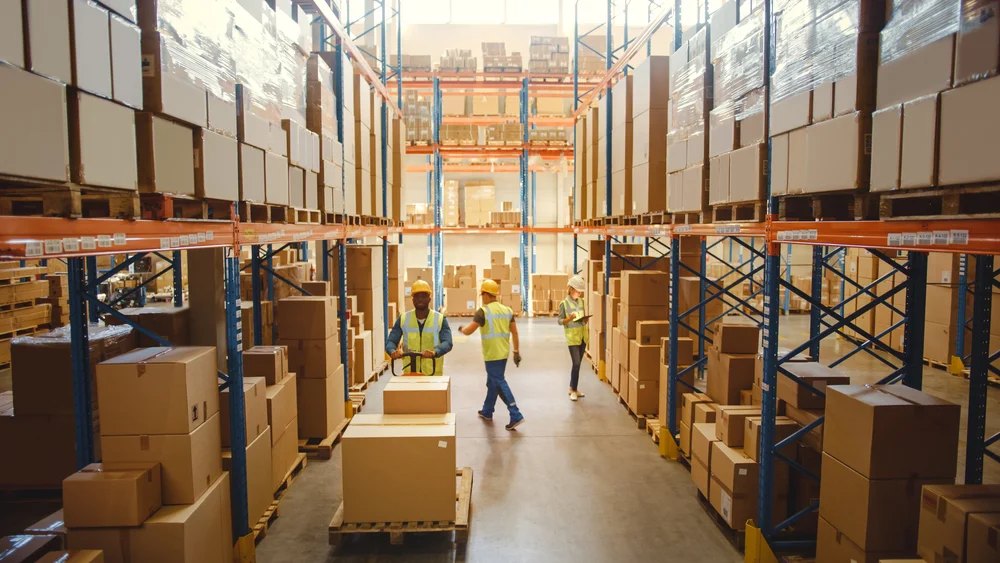
The Rise of Omnichannel Logistics: Meeting Customer Expectations Sustainably
In 2025, the logistics landscape is evolving faster than ever, and one clear trend is emerging as a game changer: omnichannel fulfillment. As consumer expectations rise for faster, more flexible delivery options, third-party logistics (3PL) providers are adapting by offering integrated solutions that span across sales channels while maintaining a strong focus on sustainability.
What Is Omnichannel Fulfillment and Why It Matters
Omnichannel fulfillment refers to the ability to process and deliver orders from multiple sales channels—online stores, marketplaces, social media, and physical retail—using a unified logistics approach. For brands, this strategy ensures consistent customer experiences regardless of where the order originates. For 3PLs, it requires advanced coordination, real-time inventory visibility, and smart automation across an omnichannel warehouse network.
Today’s consumers expect same-day or next-day shipping, in-store pickup, and even easy returns via multiple touchpoints. Without an efficient fulfillment strategy in place, companies risk losing customer loyalty and falling behind competitors.
The Role of 3PLs in Omnichannel Order Fulfillment
Modern 3PL providers play a pivotal role in omnichannel order fulfillment, acting as the operational backbone for brands navigating complex supply chains. This includes everything from managing inventory across channels and handling last-mile delivery to offering branded packaging and automated returns. Advanced warehouse management systems (WMS) allow providers to sync inventory data in real time, ensuring faster, more accurate fulfillment no matter where the order comes from.
At Tetris3PL, we’ve embraced this shift by optimizing our warehouse operations to meet both speed and sustainability goals. Orders from TikTok, Amazon, Shopify, or in-store POS systems are processed seamlessly through the same system, ensuring efficiency and accuracy at every step.
Balancing Speed and Sustainability
While speed is critical in omnichannel logistics, sustainability is no longer optional—it’s a customer expectation. At Tetris3PL, our omnichannel fulfillment services are designed to minimize environmental impact without compromising performance.
We use recycled carton packaging, LED warehouse lighting, and water conservation practices. Our facilities operate with electric forklifts and enforce waste sorting policies to reduce landfill contributions. We’ve also transitioned to paperless operations, including electronic reporting and digital shipping documentation.
By integrating sustainable practices directly into our omnichannel fulfillment workflow, we help brands align their customer service promises with their environmental commitments.
Looking Ahead: Tech, Transparency, and Trust
Technology will continue to drive omnichannel logistics forward. From AI-powered demand forecasting to smart routing for deliveries, the future of omnichannel fulfillment services lies in automation, transparency, and adaptability. Customers want to know not only when their package will arrive, but also how it was shipped—and how their purchase impacts the planet.
As a forward-thinking 3PL, we’re investing in tools that provide end-to-end visibility across all fulfillment stages. Whether it’s tracking real-time stock levels across multiple sales platforms or optimizing packaging for carbon efficiency, Tetris3PL is committed to innovation that benefits both our clients and the environment.
Conclusion
The demand for agile, customer-centric logistics will only grow, and omnichannel order fulfillment stands at the core of this transformation. By combining speed, flexibility, and eco-conscious operations, 3PLs like Tetris3PL are helping businesses thrive in a competitive, sustainable future.
If you’re looking for a partner to streamline your fulfillment services while staying green, we’re here to help. Because in 2025, smart logistics isn’t just about getting orders out—it’s about doing it right.
